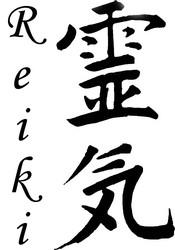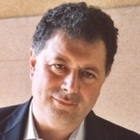A brief note and another on Newt Gingrich's entering into full communion with the one, true Church.
Faith & Reason: March 2009 Archives
 The US Bishops' Committee on Doctrine approved on March 24th and released on the 25th the Guidelines for Evaluating Reiki as an Alternative Therapy. Read the Guidelines for yourself. I suppose this important stuff; I usually look for liturgical heterodoxy and various heretical teachings first...but the bishops have a point. Since I am not a life force, universal or otherwise, I'll throw away my Reiki books.
The US Bishops' Committee on Doctrine approved on March 24th and released on the 25th the Guidelines for Evaluating Reiki as an Alternative Therapy. Read the Guidelines for yourself. I suppose this important stuff; I usually look for liturgical heterodoxy and various heretical teachings first...but the bishops have a point. Since I am not a life force, universal or otherwise, I'll throw away my Reiki books.
My friends, I believe a particularly urgent task of religion today is to unveil the vast potential of human reason, which is itself God's gift and which is elevated by revelation and faith. Belief in the one God, far from stunting our capacity to understand ourselves and the world, broadens it. Far from setting us against the world, it commits us to it. We are called to help others see the subtle traces and mysterious presence of God in the world which he has marvellously created and continually sustains with his ineffable and all-embracing love. Although his infinite glory can never be directly grasped by our finite minds in this life, we nonetheless catch glimpses of it in the beauty that surrounds us. When men and women allow the magnificent order of the world and the splendour of human dignity to illumine their minds, they discover that what is "reasonable" extends far beyond what mathematics can calculate, logic can deduce and scientific experimentation can demonstrate; it includes the goodness and innate attractiveness of upright and ethical living made known to us in the very language of creation.
This insight prompts us to seek all that is right and just, to step outside the restricted sphere of our own self-interest and act for the good of others. Genuine religion thus widens the horizon of human understanding and stands at the base of any authentically human culture. It rejects all forms of violence and totalitarianism: not only on principles of faith, but also of right reason. Indeed, religion and reason mutually reinforce one another since religion is purified and structured by reason, and reason's full potential is unleashed by revelation and faith.
Pope Benedict XVI address to the Muslim Leaders of Cameroon
Apostolic Nunciature
 Last autumn, www.ilsussidiario.net, an internet news portal edited by the Foundation of Subsidiarity directed by Giorgio Vittadini, sponsored a special "On the Spot" section with articles from US-based writers on aspects of the presidential election. This was a start for what will now be a new regular English-language section of the site.
Last autumn, www.ilsussidiario.net, an internet news portal edited by the Foundation of Subsidiarity directed by Giorgio Vittadini, sponsored a special "On the Spot" section with articles from US-based writers on aspects of the presidential election. This was a start for what will now be a new regular English-language section of the site.
 The editors are happy to announce the birth of the English section of the daily "Il Sussidiario" divided in three sections: Politics & Society, Economy & Finance, Culture, Religion & Science.
The editors are happy to announce the birth of the English section of the daily "Il Sussidiario" divided in three sections: Politics & Society, Economy & Finance, Culture, Religion & Science.
Add this link to your favorites:
http://www.ilsussidiario.net/articoli.aspx?canale=103The "On the Spot" section will feature news and opinion pieces on all aspects of life in the
Looking for writers. There is a need to produce at least two or three original articles weekly of about 450-650 words. In addition, some of the articles would be translated into Italian for a daily audience of 3000 people.
If you would like to join us in this venture, please write to clairityrose@gmail.com.
Jesuit Father Edward T. Oakes, a Mundelein Seminary Theology professor explains Pope Benedict's VERY clear reasons for putting to bed the ex communications of the SSPX bishops while delving into the acceptance of (or not) "Vatican II theology." What Vatican II said is a bone of contention of many, for a very long time....
You've got to read the article, Benedict's Vatican II Hermeneutic in First Things!
Observing the 200th anniversary of Charles Darwin's birth, the Vatican's Council for Culture, the Gregorian Univ. and the Univ. of Notre Dame gather a diverse group of intellectuals to discuss the matrix of faith and science, especially evolution. Watch the video clip.
A story from before the congress published by The Pew Forum on Religion and Public Life: Religion News, is informative.
The AP is reporting a decline of Americans indentifying with organized religion. Really, this is not new news but it seems to be in the media more these days. The story...
I tend to think that Americans, like other nations, may not identify with a particular religion yet have some sort of "religious" belief(s), some of them strange. I'm unconvinced at this time that Americans give up totally on some vague sense of faith as they might give up on the practice of the faith. We have our work cut out for proposing the beauty of Christ.
In 2008 Georgetown University Philosophy professor Tom L. Beauchamp coauthored Principles of Biomedical Ethics, a widely used book in bioethics courses, in which he sanctions and defends "physician-assisted dying."
According to a Winter 2008 Fellowship of Catholic Scholars Quarterly article by J. Brian Benestad, Beauchamp and his coauthor pronounce unconvincing "some of the arguments against the legalization of 'physician-assisted dying.'" Throughout the book the authors are redefining terms "that used to have nothing to do with administering death-producing drugs," explains Benestad. For them, "Lethal pills are called medication; helping suffering patients to kill themselves is called virtuous (beneficent, just, etc.). Not helping these patients is a failure to respect their dignity." In Principles, the authors state: "We maintain that physician assistance in hastening death is best viewed as part of a continuum of medical care." Benestad counters the argument, citing "the medical profession's devotion to heal and refuse to kill - its ethical center - will be permanently destroyed" by such a policy. (courtesy of the Cardinal Newman Society)
So much for professors at so-called Catholic universities either thinking with the Church or at least not publicly contradicting Catholic teaching. Is this beyond the exercise of academic freedom viz. faith and reason? It's interesting Beauchamp received the Pellegrino Medal in 2004 which honors recipients for contributions made in healthcare ethics following the spirit of the father of the American bioethics movement, Dr. Edmund Pellegrino. Pellegrino is a practicing Catholic and on faculty of Georgetown.
Voters in the State of
As a result of last year's state ballot Initiative 2000, terminally ill patients in
Suicide is a tragedy. People who elect to do this act are not thinking in a right manner and are looking for a way out of their pain, sometimes they say they want to ease the pain of loved ones who care for them. Whatever the reason for acting this way is, their desperation leads to a permanent self-inflicted act leading to their intended death. Suicide prematurely and violently leaves loved ones to pick up the pieces post-mortem. Many are physically, emotionally and spiritually exhausted from their health issues which is understandable: chronic illness can be painful but suicide is an inadequate way to deal with the harsh reality of life.
The Church's teaching is: "Suicide contradicts the natural inclination of the human being to preserve and perpetuate his life. It is gravely contrary to the just love of self. It likewise offends love of neighbor because it unjustly breaks the ties of solidarity with family, nation, and other human societies to which we continue to have obligations. Suicide is contrary to love for the living God" (Catechism, 2281).
But quoting the Catechism is insufficient in dealing with the issue at hand. Let's not be confused: we need to know and follow what the Church teaches. Her wisdom is immensely reliable and it ought to form our conscience. Here I want to raise the matter of dealing with the issue pastorally, lovingly with courage and strength. No statement of teaching is going to ease the pain of illness or feelings of desperation. Only the love and mercy of the one who made us can do that. The Lord loves and cherishes each one of us, and He gives the grace to sustain us until the moment of natural death. The Lord knows our pain and our human struggle because He is a man. What the
Responding to the poignant human need of those who face the hard fact of someone taking their own life, the Catholic Information Service commissioned a booklet dealing with this subject. It was our effort to help those who are looking for truth and love and the assistance of the Church. You can order a copy of Coping with a Suicide: Catholic Teaching and Pastoral Practice by emailing or calling the office (cis@kofc.org or 203.752.4267and tell them you saw the ad here) The feelings of sadness which result from the violence of suicide are never removed from the hearts and minds of the survivors even if they try to believe that Auntie is in a better place (a saccharine nosegay that whitewashes the pain temporarily). While the deceased is in the hands of God and clearly live in His mercy, we can never be presumptuous to believe that it is "alright" because "God will deal with it": the reality life is far more important than me and my own needs. The act of suicide is an act of desperation; the person who does (or thinks of committing the act) acts from feelings of exhaustion, fear, and a false sense of security. Our human response needs to be love. Our response as Christians needs to be one of faithfulness to the Lord who made us and it is He who will call us home, and it is our responsibility to be agents of reconciliation showing mercy and forgiveness.

